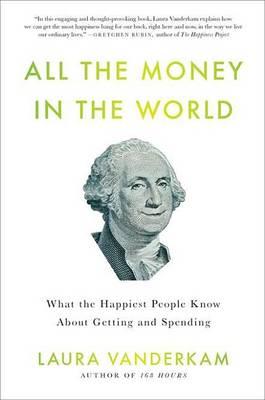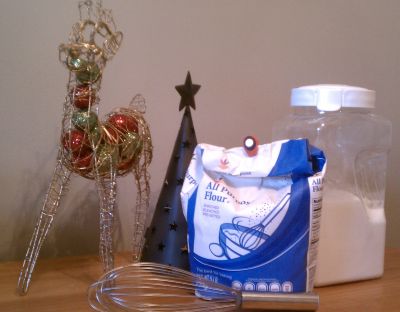How To Achieve Full-Time Success with Part-Time Hours
8
Why You Should Change Your Definition of Success
13
 I started freelancing full-time almost five years ago. At the time, success meant matching my previous income, and saying yes to every project that came my way. As a result, I found myself working nights and weekends, skipping meals, and pushing exercise to the very bottom of my to-do list, where it never got done.
I started freelancing full-time almost five years ago. At the time, success meant matching my previous income, and saying yes to every project that came my way. As a result, I found myself working nights and weekends, skipping meals, and pushing exercise to the very bottom of my to-do list, where it never got done.
These days, success means being pickier about projects, preparing home-cooked meals with my husband, and having time for both my personal book project and my daily yoga classes. I have the potential to make more money… but the other stuff comes first.
Which is why I love Laura Vanderkam‘s work. In both 168 Hours and her most recent book, All the Money in the World, she shows readers that they don’t necessarily need more time or money to achieve a successful and fulfilling life. They just need to know how to spend what they already have.
In this Q+A, Laura shows us how we should redefine success.
1. I went on a sort of Laura Vanderkam reading marathon last week. What I noticed immediately about both your books is that they eschew the typical self-help trope of promising more (more money, more time) to the reader. Rather, you stress in both books that, generally, we have enough. We just need to learn how to spend both our time and our money more wisely, rather than cutting back on things we enjoy as a means of grabbing 15 minutes here, $100 there. How did you come to this somewhat contrary conclusion?
I highly recommend Laura Vanderkam reading marathons. I’ve got some novels stuffed in a drawer that you can read as well…
To answer your question, with time that insight came from looking at successful people. I’m talking about people who have big careers and big personal lives. These people have the exact same amount of time as the rest of us, so what are they doing differently?
In some cases, these people do have more money, but plenty of people with money somehow manage to spend it on things that make their lives more complicated, rather than less. If you start with a blank slate, rather than various assumptions about how we should be spending our time and money, you’ll soon see that 168 hours a week and an average American income can cover quite a bit. I mean, who cares about spending 10 minutes less on errands if you’re in the wrong job? Then you’re wasting 40 hours a week. Fix that first. Then you can be as inefficient on your errands as you want.
2. I loved 168 Hours. Who doesn’t wish for more time? But when I read the press release for All the Money in the World, I was intrigued, because it hinted at the possibility that you don’t necessarily need to be making more money in order to be considered successful. A prospect I find attractive, as someone who values work/life balance over ever-increasing income. Can you share with us your own, personal definition of success?
My goal is to be able to write about any topic I find interesting for publications I admire and in my own books (and on my blog), and know that my words will find a big audience. Money is part of success — it’s how the market often recognizes talent — but you have to consider it within categories. You can be among the world’s best poets and still earn less than a mediocre investment banker.
3. When did you reach that aha moment where you realized that success didn’t have to mean more money? Was there a specific instance where you had to choose between saying yes to a project or yes to yourself?
In 168 Hours, I write of giving up a fairly well-paying gig with Reader’s Digest. I wrote the Only in America section for years. It was a fabulous way to learn to write tight, and to learn about an incredible diversity of subjects, from a young man who walked every street in Manhattan to the person who holds the world record for the most Guinness World Records. I’m so grateful that they gave me the chance to do that.
But what I eventually realized is that I wanted to be focusing on books and longer, bylined articles, and the mental energy required to write six to eight well-reported short pieces every month was distracting me from that goal. It was a tough gig to walk away from financially, but since my husband gets a steady paycheck, we decided I could take some risks.
4. Even though you suggest that we have enough money/time if we spend it correctly, you do recommend simply making more money rather than cutting back on expenses as a way to improve quality of life. Can you share a specific instance in which you realized you needed an income boost (whether for everyday life or a specific purchase) and hustled like hell to get that extra cash? What tactics did you use to drum up that extra money?
My first year out of college, I had an internship at USA Today. My take-home pay was about $1,200 a month. That was enough to live on, but it wasn’t enough to save for bigger goals, like travel or moving to New York City (something I’d always wanted to do). So I freelanced for a variety of different publications. When you set your expenses based on $1,200 a month, even bringing in an extra $500 is a huge win. And by the end of the year I was bringing in a lot more than that — sometimes tripling my salary. If you’re making $1,200 a month, you can’t save $2,000 a month. If you’re making $4,000 a month, you can. I was able to spend three weeks traveling in Asia after the internship ended, and then have a few months’ cushion for moving to New York without a job lined up.
5. I’m a huge advocate of career diversification, something that freelancers tend to master early on. What does a typical mix of projects look like for you over the course of any given week?
Ideally I’m working on something very long term, like a book. I’ve got a few intermediate assignments: a feature for City Journal or another magazine, a USA Today column. Then there’s the immediate stuff: blogging three times a week for CBS MoneyWatch and keeping my own personal blog (www.lauravanderkam.com). Speeches have become a bigger component of my income over the past few years as well.
6. Finally, what was the most fun/fascinating/challenging project you ever did for the money?
I once ghostwrote a book in less than six weeks. I enjoyed the challenge. If I someday need to scale up my cash flow for big goals, I’d take on two to three crash jobs like that per year.
Related: Do You Love Your Work More Than You Love… Love?, Want Freelance Success? Watch Your Health, Didn’t Get It Done? That’s Your Own Damn Fault, Better Than Money
Spill It: Are You an Emotional Mess After a Major Success?
6
 When my literary agent first offered me representation the other week, I tried to play it cool. I told her I was thrilled she was so into my book idea. I told her I’d have to touch base with another agent who also had my full proposal. Then I hung up the phone, my hands shaking, and started to cry.
When my literary agent first offered me representation the other week, I tried to play it cool. I told her I was thrilled she was so into my book idea. I told her I’d have to touch base with another agent who also had my full proposal. Then I hung up the phone, my hands shaking, and started to cry.
My husband’s response: “You have weird reactions to things.”
Thanks, Michael. Thanks a lot.
I swear, you guys. They were happy tears. I’d wanted to be an author since the age of 5, and this was huge leap forward for me.
Only a week or two later, though, I was depressed.
I’ve been focusing a lot of my energy lately on personal projects. Over the summer, I ghostwrote and edited an ebook in only two months. In November, I did a shit-ton of content creation for an advertising client. I also did a slew of freelance articles and blog posts. But after that, feeling I finally had time to breathe, I spent a lot of time developing my starter kit and then promoting it. I also developed a book proposal and started querying agents. I did all this at the general exclusion of actual paying work (despite totally knowing better) and, by late February, my bank account was dangerously low. I felt like a failure, and I suggested to Michael that I just be his trophy wife going forward.
When I mentioned this to my fabulous writing partner, whom I am completely and neurotically dependent upon, she sighed. “You do this every time, Steph,” she said. “Every time you accomplish something big, you get into a slump only a week or two later.”
She reminded me that I’d managed to pay off my credit card debt in January, a feat that had taken me about three or four years to accomplish. She mentioned that I’d just written and launched my starter kit, which had led to over 100 percent growth in my mailing list. Then she mentioned that I’d just landed a literary agent. “This is something you’ve dreamed of your entire life,” she said, “and now you feel like a failure!?”
She had a point.
It made me think of an essay I’d just read in the March/April 2012 issue of Poets & Writers*, on the post-publication blues. In it, author Kim Wright writes about an affliction common among debut novelists: the tendency to fall into a paralyzing depression after their book’s publication date. ”…getting what you’ve always said you wanted, finally reaching that single enormous goal. It can all be a little… depressing,” she writes. She’s talking about becoming an author (and you should check out the essay in full yourself; it’s fantastic), but I feel it can apply to any large, personal success.
Lyz (the aforementioned writing partner) said she thinks it’s because, upon accomplishing something, we immediately ask ourselves: What’s next?
I’d take that a step further and say that, in addition to wondering what’s next, I also often feel as if the stakes are raised. I worry about making the wrong next move, not living up to others’ expectations, not moving forward, falling flat on my face.
I warned you I was neurotic.
But I can’t be the only one. That P&W article wouldn’t exist if I was. So tell me:
Have you experienced the post-success slump? If so, what did you do to get back in the saddle?
*I totally just typo’d P&W to read Pets & Writers… a magazine I would definitely subscribe to if it existed. Get on it, people.
A Holiday Recipe for Freelance Success
20
It’s five days until Christmas, and Holiday Brain has reached a fever pitch.
Yesterday, I baked two Nutella Swirl Pound Cakes while my Christmas mix played and the tree lights twinkled. It was so effing cozy and festively charming that my brain almost imploded. This morning, I baked a lemon pound cake and, tonight, I’ll be doing up five varieties of holiday cookies with my mom and brother.
I still have two more pound cakes to go.
I’ve also spent the past three weekends driving around with my husband and looking at holiday light displays whilst sipping eggnog lattes and mint hot chocolate. And doing up ridiculous holiday e-cards that heavily feature my cats being forced to wear holiday outfits. And planning holiday dinner parties and party parties.
Clearly, my mind is on one thing, and one thing only.*
Don’t worry. I won’t hold out on you. Here. Let me share one of my favorite holiday recipes:
Freelance Success:
- 3 oz. passion for an industry, profession, or talent you happen to have
- 1/4 lb. willingness to educate yourself on the aforementioned passion
- 1 c. bravery; you’ll need it to go full-time freelance
- 1.5 c. willingness to network your damn ass off, and maintain those connections you make
- 2 tbsp. innovation and creativity
- 2 tsp. knowledge that you can’t just create; you have to sell yourself, too
- 1 c. self-discipline
Mix all of these ingredients in a large bowl. Pour the batter into a loaf pan and bake at 350 degrees for five or so years. Hint: The flavor changes the longer you let it bake. Just take care not to burn yourself out.
If you need some help in the kitchen, there are 11 days left for you to purchase my special holiday coaching package: One Hour to a Word Nerd Action Plan.
If you’d prefer the recipe to either the Nutella Swirl or lemon pound cakes, feel free to contact me. ![]()
Good luck and happy holidays!
*Though for some reason, I still haven’t wrapped a single one of my presents.
Related: Happy Holidays! From Me to You, the Gift of Gluttony, How to Keep Up the Momentum During the Holidays
Inch By Inch: How Small Steps Lead To Big Success
17
 Earlier this week, I joined a yoga studio just two minutes from my condo, and started trying out different classes. I had been using Shiva Rea and Rodney Yee DVDs at home, but I wanted to mix things up, and I wanted someone who could tell me when my elbows were pointed in the wrong direction, and who could correct my stance. I wanted someone who could adjust my pose the one iota it needed to be perfect. I wanted to achieve yoga success.
Earlier this week, I joined a yoga studio just two minutes from my condo, and started trying out different classes. I had been using Shiva Rea and Rodney Yee DVDs at home, but I wanted to mix things up, and I wanted someone who could tell me when my elbows were pointed in the wrong direction, and who could correct my stance. I wanted someone who could adjust my pose the one iota it needed to be perfect. I wanted to achieve yoga success.
Yesterday afternoon, the instructor had us do headstands. When I admitted I hadn’t done one since I was a toddler, he rubbed his hands together with glee and had me move my yoga mat up against the wall. Then, he walked me through the setup for the position and watched as I struggled to get my legs up above my head.
“Just one more inch,” he said as I flailed about. After a few moments, I let out a surprised “Oh!” as my feet touched the wall.
I left the class feeling exhilarated by how easy it had been to do that headstand. How close I was without even knowing it.
When I got home, there was more good news in my inbox. Thanks to a quick email nudge I’d sent the week before, a lit agent that a client of mine had introduced me to via email wanted to set up a time to chat about my book proposal.
I don’t know what will come of that chat, but I feel similar to how I felt when I was attempting that headstand: So close… close enough for my feet to touch the wall.
Sometimes, people look at my business and feel frustrated that they’re not where I’m at in my writing career. The thing is, it took me over 10 years to get here, and I’m still not even where I want to be. I’m still moving forward. Inch by inch.
It took a lot of self-help books to get here. A lot of continuing education classes and post-college internships, and a lot of query letters. It took a lot of online and in-person networking and a lot of informational interviews. It took full-time and permalance jobs… small and large assignments.
It took a heckuva lot of one-sentence followup emails.
Every year, I look back and am proud of the things I’ve accomplished. But then I look forward and see how close I am to achieving the next big thing. I agonize over a query letter. I send another followup email. I attend an event. I move forward an inch.
For the longest time, I felt I wasn’t going anywhere. It felt as if my wheels were spinning. Today, I turned 31. I can see my progress. I’m excited for what’s next.
How many small steps have you taken this week to move forward that next inch?
What have you already accomplished?
What are you most proud of?
Related: News Flash: Both Marriage and Freelancing Are Hard, Nothing To Do with Luck, Bring in New Projects Without Lifting a Finger

